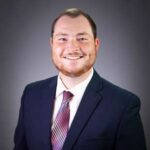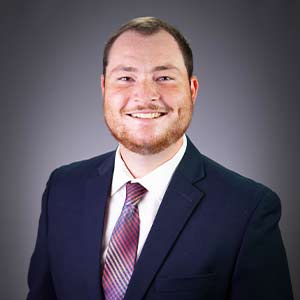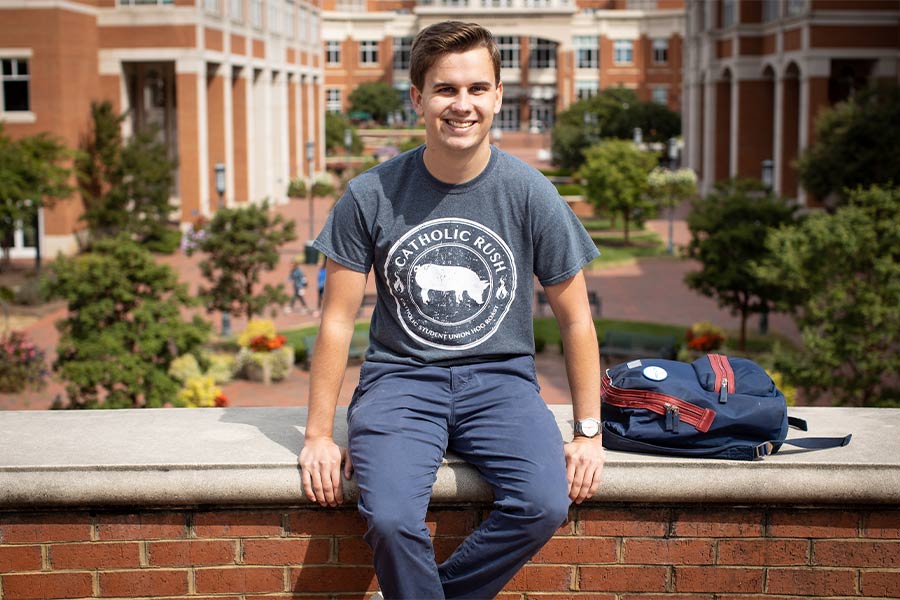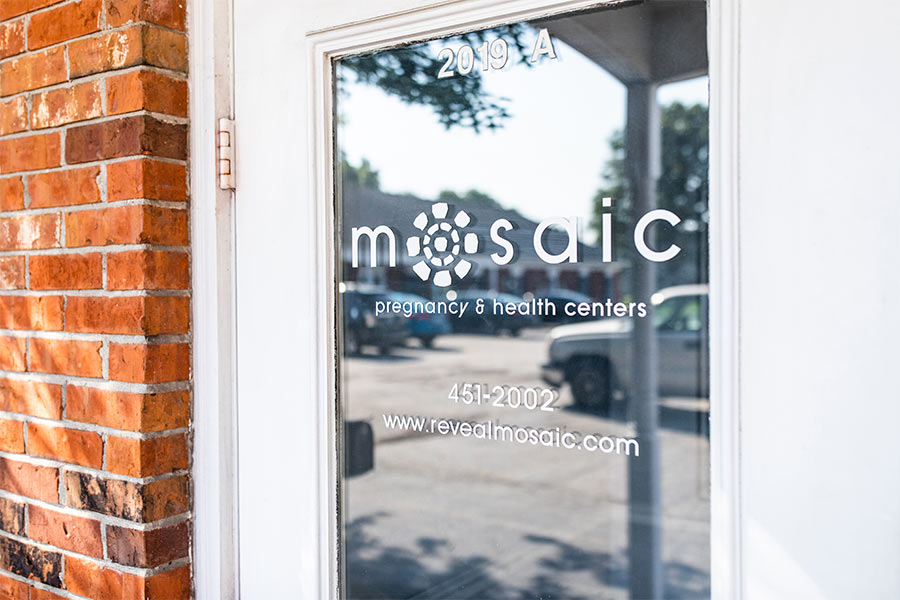
Not too long ago, most people agreed that censorship was harmful to society. Everyone has the right to express what they believe, and in the United States, this right is firmly protected by the Constitution.
Unfortunately, we are facing unprecedented efforts by both public and private actors to censor individuals in the U.S. and in other countries. Perhaps even more concerning is the fact that many young Americans are buying into the false idea that free speech is somehow harmful.
According to a 2022 poll from Pew Research Center, 62 percent of U.S. teens said it was more important that people feel “welcome and safe online” than it was that people can “speak their minds freely online.” Of course, the dichotomy between free speech and safety is a false one, but the poll does suggest that young Americans do not have a high view of free speech.
Contrary to what is being taught in many college classrooms and in much of the establishment media, allowing everyone to freely express their beliefs is a hallmark of any free society. Censorship threatens freedom at its very core, and we must understand the danger so that we can stand against it.
What is censorship?
Encyclopedia Britannica defines censorship as “the changing or the suppression or prohibition of speech or writing that is deemed subversive of the common good.” While censorship is often associated with government officials, private actors can also endanger freedom by engaging in censorship.
People in positions of power can often censor those they hold power over—in government, media, financial institutions, and more. Alliance Defending Freedom is committed to opposing unlawful censorship in its various forms.
Why is censorship bad?
The freedom of speech is an important foundation of any free society. As human beings created by God, all people possess the right to speak freely, and censorship infringes on that right.
While it is correct to say that not all ideas are true and beneficial, the way to respond to bad or false ideas isn’t to prevent them from being shared. Rather, the solution is more speech. In a society governed by free speech, bad ideas can be countered with positive and truthful ones. Robust debate is essential to determining which ideas are true and good, and when more people speak up for the truth, false and worthless statements are recognized for what they are.
By contrast, a society in which censorship is encouraged can endanger true and virtuous ideas. If government officials have the power to censor people, then they are the ones who get to decide which ideas may be expressed.
Government officials are humans, too, and that means they can also have bad or harmful ideas. In a society without free speech, these officials have unchecked power to implement harmful ideas and censor anyone who questions them.
Government censorship
One common form of censorship comes at the hands of the government. Government censorship occurs when agencies or officials silence speech or punish people for speaking their beliefs.
These twin forms of government censorship are unfortunately common, but ADF has been active in combatting both.
Government officials can’t silence speech they don’t like
Because the First Amendment explicitly protects the freedom of speech, government officials in America cannot silence speech simply because they disagree with it. But that is exactly what government officials have attempted time and again. One recent example is the case Chiles v. Salazar.
Kaley Chiles is a licensed counselor in the state of Colorado, and she works to help her clients achieve the goals they’ve set for themselves. Some clients who come to Kaley for help struggle with discomfort with their sex—the bodies they were born with. But Colorado’s Counseling Censorship Law prohibits Kaley from having certain conversations with her younger clients about this topic.
If a client wants to “explore” their gender identity or sexual orientation, the law allows counselors to provide “[a]cceptance, support, and understanding.” It also allows counselors to “assist” anyone who is “undergoing gender transition.”
But counselors are prohibited from saying anything that would encourage clients to “change” their sexual orientation or gender identity. The state does not define the difference between encouraging a client to “change” their sexual orientation and gender identity and encouraging them to “explore” their options.
Kaley always lets her clients determine their own goals and aligns her counseling with the clients’ choices. But under Colorado’s law, even if clients express a desire to become more comfortable with their God-given sex or reduce unwanted same-sex attraction, Kaley is prohibited from talking with them to help them accomplish those goals.
ADF is defending Kaley against this illegal censorship because counselors should not be forced to impose the government’s ideology on their clients. In March 2025, the U.S. Supreme Court agreed to hear Kaley’s case.
Many other Americans have faced similar types of censorship. ADF has defended—and continues to defend—clients all across society such as grad student Maggie DeJong, volunteer fire chaplain Dr. Andrew Fox, music teacher John Kluge, and many more as different government entities have tried to silence or punish them.
The government can’t punish Americans for expressing their beliefs
Sometimes government officials not only silence Americans before they speak but also punish them after they express messages that the government disfavors. This was the case when a Vermont school district fired snowboarding coach Dave Bloch.
Coach Bloch’s team was set to compete against a team that had a male athlete competing against girls. When he overheard two of his student-athletes discussing males competing against females, Coach Bloch stepped into the conversation. Coach Bloch shared his belief in the biological reality that males and females are different and that males generally have inherent physical advantages over females in sports.
During that conversation, Coach Bloch never mentioned the athlete on the other team who identified as transgender, and the competition took place without incident. But the next day, the school district fired the coach because it disagreed with his views.
After ADF filed a lawsuit, both school and state officials recognized that Coach Bloch’s conversation did not violate the state-mandated Harassment, Hazing, and Bullying Policy, and they paid nearly 17 times his annual salary as part of a settlement.
Private censorship
In addition to censorship by government officials, censorship by private actors is also on the rise. While the First Amendment applies specifically to Congress, that doesn’t mean that it is acceptable for banks, schools, employers, or other private actors to engage in censorship.
De-banking
De-banking happens when a bank cancels the account of a person or an organization for their political or religious beliefs. This practice would have sounded far-fetched just a few years ago, but now it is happening at some of the largest banks in America.
In April 2023, Bank of America canceled the accounts of Memphis-based Christian charity Indigenous Advance and a local church that supports it financially. The bank sent letters stating that the ministry and church were “operating in a business type we have chosen not to service” and that the ministry’s account “no longer aligns with the bank’s risk tolerance.”
In operation since 2015, Indigenous Advance partners with Ugandan ministries to provide basic necessities for orphaned and vulnerable children, raise Christian families, and provide vital vocational-skills training and mentorship to college students and young adults. This is just one of the many recent examples of de-banking.
ADF was also recently swept up in a closely related issue, financial surveillance. In March 2024, the House Select Subcommittee on the Weaponization of the Federal Government released documents showing that federal law enforcement urged virtually every major financial institution to monitor ADF as a domestic terrorist threat. The U.S. Treasury Department’s Financial Crimes Enforcement Network (FinCEN) shared a so-called “hate group” list by the hyper-partisan Institute for Strategic Dialogue with Big Banks and urged them to monitor customers whose beliefs the government dislikes for potential domestic violent extremism. ADF and other mainstream religious and conservative groups were among those swept up in FinCEN’s Orwellian surveillance scheme.
The House Report singled out ADF as one of the targeted groups and invited ADF to testify. ADF Senior Counsel and SVP of Corporate Affairs Jeremy Tedescotestified before the subcommittee about the many dangers of politicized de-banking and called on Congress to take action against it.
ADF has already seen positive developments from our advocacy against de-banking. Since we launched the annual Viewpoint Diversity Score Business Index in 2022, JPMorgan Chase has changed a policy that posed a serious risk of viewpoint-based de-banking decisions. While JPMorgan Chase and other banks still have a long way to go to fully respect the First Amendment, this important policy change is a step in the right direction.
ADF continues to work with shareholders, attorneys general, and state financial officers to ensure that companies respect the free speech and religious freedom of all their customers. We are also working with state legislators to pass legislation that will prohibit banks from discriminating against customers for their political or religious views.
Social media censorship
Another example of private censorship is censorship by social media companies. ADF has filed two recent amicus briefs in cases arguing against government censorship on social media.
In the first of those cases, O’Connor-Ratcliff v. Garnier, two school board members used Facebook and Twitter to communicate government information. When two parents criticized the school board members on those accounts, the officials censored the parents and eventually blocked them from viewing the accounts. ADF filed an amicus brief in support of the parents because school officials cannot use social media to prohibit the discussion of viewpoints they do not like.
In May 2024, the U.S. Supreme Court ruled in a similar case, Lindke v. Freed, that government officials can be held accountable for free-speech violations on social media but are also protected by the First Amendment when they use social media for their own private purposes. As a result of the Lindke decision, the Court sent O’Connor-Ratcliff back to the appeals court for further review.
In the second case, O’Handley v. Weber, California officials instructed Twitter (now called X) to punish an American citizen because he shared an opinion on that platform that the officials disfavored. The government officials violated the First Amendment by trying to censor speech, and Twitter went right along with it.
In these two cases, public officials (school board members and government officials) participated in the censorship of American citizens either directly or by pressuring private companies to do so.
Where is censorship happening?
Censorship can occur nearly anywhere. But there are a few arenas in which censorship has become all too common.
Schools
Censorship in schools is a major concern today. At a Massachusetts middle school, administrators told a student that he could not wear a shirt that said, “There are only two genders.” At the University of Idaho, three students and a professor were issued no-contact orders because they responded honestly to a question about their faith. And during the COVID-19 pandemic, at an elementary school in Mississippi, district officials told a third-grader that she could not wear a “Jesus Loves Me” mask.
In addition to students, teachers are also being targeted. In Georgia, Bryan County Schools fired longtime substitute teacher Lindsey Barr because she expressed concern about a book being taught to her daughter. ADF challenged the school district in court and got Lindsey her job back. The district also paid $181,000 in damages and attorneys’ fees.
Former University of North Texas professor Dr. Nathaniel Hiers also faced censorship from school officials. After Dr. Hiers made a joke about a flyer that warned of the so-called dangers of “microaggressions,” which included examples like “America is the land of opportunity” and “I believe the most qualified person should get the job,” the school terminated his employment. ADF represented Dr. Hiers in court, and the university ultimately paid $165,000 in damages and attorneys’ fees for violating the professor’s freedom of speech.
Pro-life pregnancy centers
Sometimes, censorship from governmental officials doesn’t mean completely silencing someone. Instead, it could mean forcing someone to alter their message or include some sort of disclaimer as a condition of speaking. That is exactly what happened to pro-life pregnancy centers in California.
A California law mandated that pro-life pregnancy centers had to provide disclosures informing women that they could obtain free or low-cost abortions and directing them to a county office that would refer them to Planned Parenthood or other abortion providers.
In addition, the law required unlicensed pregnancy centers to add disclosures on all advertisements explaining that they were not medically licensed. Many of these centers don’t offer medical services but rather provide free assistance like parenting classes, diapers, and strollers. The forced disclosure would drown out the centers’ pro-life messages and falsely imply that they were not qualified to help pregnant mothers.
ADF represented the National Institute of Life and Family Advocates in challenging these requirements, and in June 2018, the Supreme Court struck down California’s law.
In a more recent example, a vaguely worded law in Vermont is impeding the ability of pregnancy centers to provide help and support to women and families. The law affects pregnancy centers in two ways. First, it censors their ability to advertise their free services, prohibiting “misleading” advertising but failing to define what violates the law. Second, the new statute precludes centers from offering services, information, and counseling unless provided by a licensed health-care provider. ADF is representing NIFLA and two of the state’s pro-life pregnancy centers in a lawsuit against Vermont officials.
International
While the examples mentioned above have occurred in the U.S., censorship is prevalent worldwide. One of the most egregious cases surrounding censorship that ADF International has supported is occurring in Finland.
Finnish Parliamentarian Dr. Päivi Räsänen was accused of “hate speech” because she questioned her church’s stance on sexuality in a Twitter post. Both a district court and the Helsinki Court of Appeal unanimously acquitted Dr. Räsänen of all charges. Unfortunately, the Finnish prosecutor still refuses to respect free speech. The decision has been appealed to the Finnish Supreme Court, which has now agreed to hear the case.
Section 12 of Finland’s Constitution protects freedom of expression for “everyone,” which includes the freedom to express your beliefs – and international law on this issue is clear. But just like in America, some government officials are ignoring that protection by choosing to prosecute the parliamentarian for peacefully expressing her convictions.
Conclusion
Censorship today is rearing its ugly head worldwide. From American classrooms to the Finnish parliament and nearly everywhere in between, people are being silenced or punished for expressing messages that the government disagrees with.
At ADF, we understand the importance of free speech to any free society. Some think censorship is necessary to silence views that are untrue, but that couldn’t be further from the truth. Censorship is never the answer. One of the great benefits of free speech is that when a variety of views are allowed to be expressed, those that are true and noble can naturally rise above the rest.
By challenging unlawful censorship, ADF has helped to achieve resounding victories for free speech. We have successfully defended the rights of Americans to share the Gospel message on their own property, dance to Christian songs in school talent shows, chalk pro-life messages on a public sidewalk, and more. And we will continue to oppose unlawful censorship and defend the right to speak freely.
It is not the job of government officials to censor what others can say or hear. For freedom to thrive, we must not let the government silence ideas it disagrees with, but must instead work to ensure all people are free to express what they believe without fear of government punishment.






